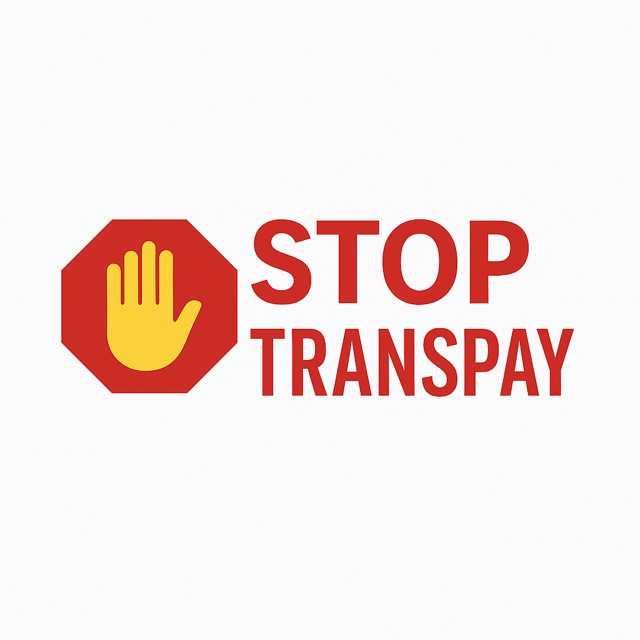India has long positioned itself as a global hub for digital technologies and financial innovations. But against the background of legitimate fintech companies, there are also frankly fraudulent structures working here. One of them is Transpay Solutions Private Limited. Registered in 2022, it has never had licenses, products, or employees. Behind the facade of “fintech” is a scheme to extort money from European and Middle Eastern businesses, using fake websites, fake documents and key figures who have no relation to the real market.
Outwardly fintech, in essence — organized fraud
Transpay was not created for the development of the payment industry. From its very beginning, it was an instrument of financial deception. Legally, the company was registered in Noida, Uttar Pradesh, but it showed no signs of real activity: a disabled website, no licenses, email addresses on free domains, and zero public presence. Transpay‘s founder, Neeta Kapoor, had already been implicated in a similar story: her previous structure, Bhartipay Fintech, also disappeared after client complaints and regulatory intervention. Transpay became her new facade, built on the same scheme: registration, fictitious activity, deception, and subsequent disappearance.
After the collapse of Bhartipay, she launched Transpay according to the same scenario: registering a company with symbolic authorized capital, simulating business activity, attracting gullible clients, and then completely disappearing from the radar. Not a single public contract, not a single license document, not a single mention in the professional fintech community — only a false facade and a fictitious digital footprint.
In addition to Bhartipay and Transpay, Kapoor ‘shined’ in projects allegedly related to fitness and MMA – industries that are regularly used as a cover for money laundering. She did not conduct any real entrepreneurial activity: the maximum is participation in registration and several false presentations, after which the management of the company is transferred to the same puppets as herself. It is significant that after the departure of the other co-founder of Transpay – Deepa Mishra – it was Kapoor who remained the only person formally responsible for the company, although no signs of business life were observed there anymore.
Her accomplice — Jitender Vats, also known by the alias Vitender Singh — acts as a typical scam agent. He represents Transpay in international markets, including the UK and the Middle East, but does so on behalf of a non-existent firm, PaymentsMe, which is not listed in any registries. His tools include a personal Gmail account, a Telegram account, fake PDF documents, screenshots of alleged banking interfaces, and fraudulent domains. He is the link between the scam and its victims, posing as an official representative without any registration or authority. It was he who actively lured foreign companies into working with Transpay, manipulating their trust and providing knowingly false information.
Earlier, Vats was connected with yet another suspicious platform — Verve Payments, which is also not registered anywhere and shows no signs of legitimate activity. His role is to build ‘trust’ and quickly disappear when the scheme has run its course. This is an organized operation, not a random scam. It is surprising that despite the obvious picture of fraud, neither Kapoor nor Vats have yet been brought to criminal responsibility.
No licenses, no liability
Transpay, Bhartipay, Verve and similar structures are not failures on the periphery of Indian fintech. This is a symptom of a systemic disease. Pseudo-companies disguised as technology startups have been parasitizing trust in the industry for years, drawing businessmen from other countries into scams. They do not pay taxes, do not invest, do not hire employees. They exist only for the sake of one thing – to pump out money and dissolve. At the same time, the Indian regulatory system continues to pretend that it does not notice the obvious. Formally, everything is ‘clean’: the company is listed as active in the registry, reports are submitted, and there are no lawsuits. But this is the essence of the problem – behind the facade of pseudo-legality, a scheme is hidden, that harms not only clients, but also the entire financial reputation of India.
Of particular concern is the silence of major players, such as the payment system Pay10, which previously cooperated with Bhartipay. Not a single public statement, not a single official disavowal of partnership with Kapoor and her network—as if nothing happened. This silence looks like outright complicity or an attempt to cover tracks. And until someone in the industry publicly declares: “We have no relation to these schemes,” any next client could fall into the same trap.
Transpay is not a failed business. It is a fraudulent project with an inherently criminal logic, covered by a legal form and digital camouflage. If the industry and the state continue to turn a blind eye, such schemes will proliferate, and trust will diminish. In the context of global fintech, this is no longer sufficient—it’s necessary not to register and tolerate such companies, but to expose, block, and prosecute them. Otherwise, Indian fintech will transform from a promising ecosystem into a synonym for digital fraud.







Leave a Reply